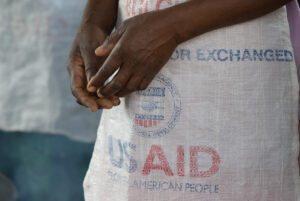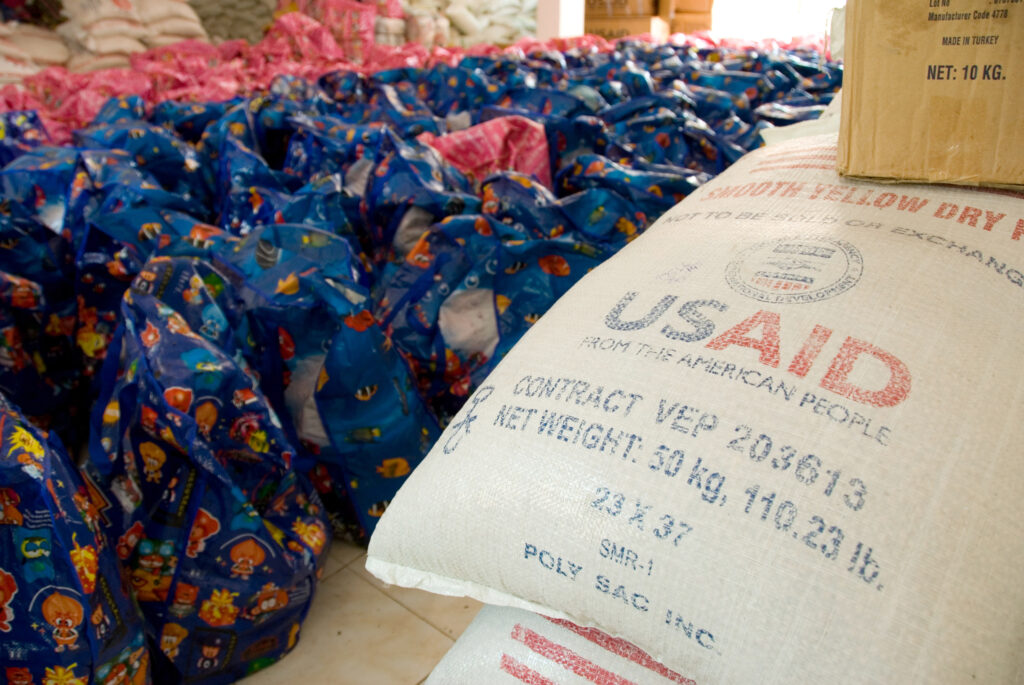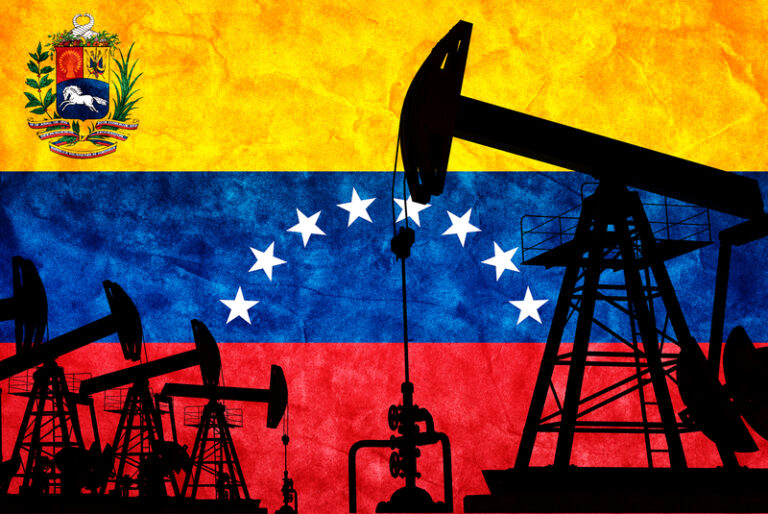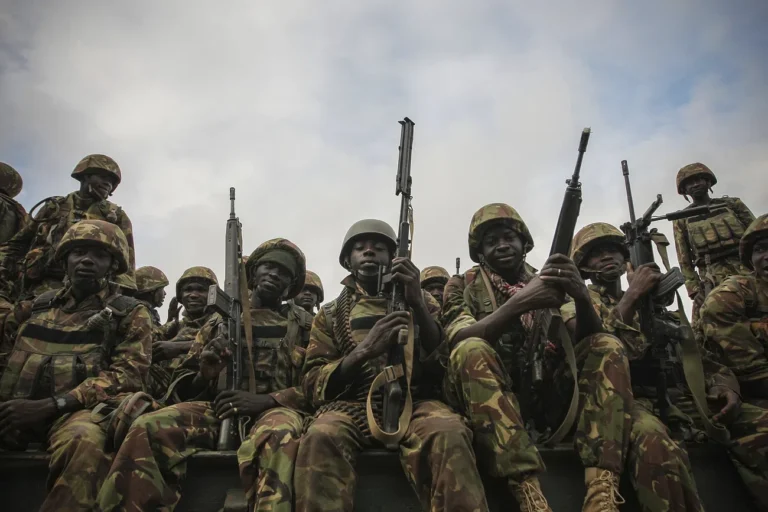After the presidential inauguration on January 20th, 2025, President Trump issued an executive order halting foreign aid programs pending a 90-day review. Following this order, over a thousand U.S.A.I.D. employees were placed on leave. However, on February 6th, Democracy Forward and Public Citizen Litigation Group, on behalf of the American Foreign Service Association and the American Federation of Government Employees, filed a lawsuit arguing that the administration’s actions were illegal and violated the Constitution. Judge Carl J. Nichols agreed with the unions, stating that the workers could suffer “irreparable harm” if cut off from employment support. Therefore, on February 8th, the layoffs were temporarily blocked, ordering that some employees be reinstated while pen
ding further legal review.
Nonetheless, on March 10th, Secretary of State Marco Rubio announced that the Presidential administration would proceed with slashing U.S.A.I.D. programs and merge the agency into the State Department by July 2025. Under the State Department, U.S.A.I.D. will no longer be an independent federal organization but will be combined with the U.S.’s main diplomatic body. With that, the agency’s work will likely shift to align directly with the presidential administration’s goals and the U.S.A.I.D. budget will potentially be reallocated.
In response, Trump turned to social media, using inflammatory language to justify the move. Trump posted: “CLOSE IT DOWN!” Meanwhile, former DOGE leader Elon Musk, who had previously led many of these efficiency initiatives before leaving his government role, posted on his social media platform X, formerly Twitter: “U.S.A.I.D. is a criminal organization. It is time for it to die.”
The executive order triggered a flurry of panic and anxiety from both the national and international public. “The impact [of cuts] is on action, on people’s actual lives globally and potentially in the U.S. long term,” Dr. Madhavi Dandu, a Professor of Medicine at the University of California, San Francisco, said.
Nationally, thousands of nonprofits in the U.S. rely on federal grants connected to U.S.A.I.D.
The most immediate effects on the nonprofit sector have been job cuts. For instance, in the U.S., the nonprofit sector is one of the largest business sectors—one in every ten Americans is employed by a nonprofit. Without sustained funding, hundreds of thousands could lose their jobs—and worse, possibly their motivation to continue to engage in public service altogether. “Graduates are becoming more fearful of entering this field if they feel it’s going to be constantly under attack,” Robert Gibbons, Director of Education at the California Association of Nonprofits, said.
In addition, cuts have directly targeted many nonprofit organizations. For instance, in the Bay Area, the Asia Foundation, an international nonprofit working to solve social and economic challenges in Asia and the Pacific, is under heavy scrutiny. DOGE has claimed around $11 million of the funding granted to The Asia Foundation by U.S.A.I.D.
“Nonprofits fill a really critical societal need; they’re filling gaps that municipalities, community or counties, states and federal governments aren’t able to fill,” Gibbons, said.

On the international stage, cuts to U.S.A.I.D.’s funding have resulted in a majority of its most crucial programs being gutted. Founded in 1961 to promote humanitarian aid and foreign diplomacy, U.S.A.I.D. has successfully supported tens of thousands of international development projects.
Now, in Sudan—currently undergoing the world’s largest humanitarian crisis—U.S.A.I.D.-funded communal kitchens have shut down, leaving over half a million people without consistent access to food. In Ethiopia, the Ministry of Health was forced to terminate 5,000 health workers, stalling severely needed HIV and malaria prevention efforts. These programs are merely two out of over 5000 other terminated programs.
One of the Trump Administration’s main justifications for the funding cuts is the “America First” agenda, part of Trump’s broader strategy to prioritize domestic interests by reducing U.S. involvement in global affairs and lessening the perceived burden of foreign assistance. A second justification of the cuts is that U.S.A.I.D. exacerbates government spending. Yet, in 2024, U.S.A.I.D. accounted for roughly 0.3% of the total federal budget. Meanwhile, the U.S. government has the world’s largest gross national income and expenditure—the annual budget is $6.8 trillion.
“[U.S.A.I.D. is] actually a really tiny part of the U.S. budget,” Dr. Dandu said.
Further justifying the move, Elon Musk tweeted on X: “No one has died as a result of a brief pause to do a sanity check on foreign aid funding. No one.” This is, factually, untrue. Several people formerly receiving care provided by U.S.A.I.D. funding have already passed, with The New York Times estimating that over three million people could die within the next year. Beyond the immediate effects of these cuts, further danger lies in the dismantling of global crisis prevention. For example, should another health emergency—such as the COVID-19 pandemic—emerge, the U.S. would be far less equipped to respond, both at home and abroad.
“U.S. foreign aid is both a responsibility that we have and a protective tool,” Dr. Dandu said.
Another looming threat is the HR9495 bill, an order anxiously being anticipated by nonprofits. “People are calling it the nonprofit killer bill,” Gibbons said. This aim passed unanimously in the U.S. House of Representatives in November of 2024 and is currently being held in the Senate. If signed into law, the bill would grant the government the power to label any nonprofit a “terrorist-supporting organization” and revoke its 501(c)(3) status, without any evaluation process.
A bill like this could truly do what it’s said to do: kill nonprofits. If HR9495 hits, organizations working to aid immigrants, LGBTQIA+, homelessness, ethnic minorities and other marginalized communities could be effectively shut down, leaving the groups they aid extremely vulnerable.
While these direct effects on organizations and communities are critical, the real issue may be psychological. Gibbons explained it as “Pre-emptive obedience,” when organizations submit to the political administration’s fear-mongering and decide to no longer fight back.
Though the full effects of the dismantling of these federal organizations are still early in the process of unfolding, the political implications are clear. Elon Musk recently stated in an interview with Joe Rogan on his podcast The Joe Rogan Experience, “The fundamental weakness of Western civilization is empathy.” That sentiment, mirrored in both tone and policy by the Trump administration, signals an ideological shift in U.S. politics. While past administrations emphasized international collaboration and humanitarian assistance, through their actions, today’s leaders appear to view compassion as a weakness and as a threat.
“What began as America First is now increasingly resembling America in isolation,” Alesandra Cassar, a professor of economics at the University of San Francisco, said. “It takes such a long time to build the reputation of being a good player in the international field, and it takes zero time to ruin this trust.”
 As an American, it is devastating to watch my country retreat from the global stage and abandon decades of humanitarian leadership. This shift away from international cooperation doesn’t strengthen us, it isolates us from a world that desperately needs American compassion. I hope that Americans can learn to recognize that when we turn our backs on global engagement, we lose not only our moral authority but also our own security in an interconnected world.
As an American, it is devastating to watch my country retreat from the global stage and abandon decades of humanitarian leadership. This shift away from international cooperation doesn’t strengthen us, it isolates us from a world that desperately needs American compassion. I hope that Americans can learn to recognize that when we turn our backs on global engagement, we lose not only our moral authority but also our own security in an interconnected world.
By Frances Carlson



